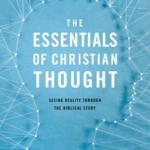Treason of the Intellectuals?
One of the most thought-provoking Youtube videos I have watched recently is “The Treason of the Intellectuals with Niall Ferguson.” It is an interview conducted with historian and public intellectual Niall Ferguson, a highly educated scholar who has taught at both Harvard and Stanford universities. It interviewer is Hoover Institute fellow Peter Robinson. The gist of the interview is that new universities are needed in America as the traditional ones, especially the grand ones, have become captive to “wokeism,” an ideology they are enforcing on faculty and students to the suppression of free thought and expression. In effect, claims Ferguson, the intellectuals at these mainline universities are creating environments where academic freedom no longer exist. A collection of dogmas under the umbrella term “DEI” (Diversity, Equity, Inclusion) is being forced on everyone to the exclusion of any right to question them. This, Ferguson argues, is treason—among educators, treason against the very purpose of higher education.
The upshot is that Ferguson and others plan to found a new university called The University of Austin, in Austin, Texas, where freedom of thought and expression will be truly honored and no ideology will be made orthodox.
What Ferguson is talking about is, of course, a predictable and therefore somewhat boring one (to those of us who have been in the American academy for very long). However, in spite of being those, Ferguson makes a very powerful case for DEI being “a bridge too far” in terms of violating academic freedom, something everyone in American academia knows is really a myth.
I would like to talk about a different “treason of the intellectuals” and that is the claims that higher education embraces academic freedom and values academic excellence over money. I taught in four American universities over forty years and my experience is that these are almost laughable myths. The “treason” part is that they are myths rather than realities and that their mythological nature does undermine the very purpose of higher education.
Over those forty years I experienced, time and time again, administrators, possibly under pressure from non-intellectual but deep-pocketed regents and trustees, choosing money (often in the form of enrollment numbers and/or donations) over academic standards and accreditations over academic freedom.
I could give countless examples. Perhaps the, to me, most memorable and notable example is the university where I taught whose provost, undeniably supported by the president, insisted on calling our students “our customers” and declaring to the faculty that no department, even philosophy, was safe from closure if it did not attract sufficient numbers of students to make it financially viable. And he insisted that the university begin a “degree completion program” to increase enrollment and income. A degree completion program is one where adult students, being taught and learning by a certain educational philosophy called “adult education,” can earn a bachelor’s degree without going through the traditional four years of higher education. A student admitted to the program had to have two years of college or go through a process called “leveling.” Once he or she had acquired two years of higher education, he or she could be admitted to the degree completion program and receive one year of college/university credit for “life experience.” He or she had only to write a twenty-five page paper detailing the “life experience” and then complete one year of college/university credit via evening classes.
I served on the committee that created the program and set forth its rigorous academic standards. We, the committee made up of faculty, administrators and staff, were very conscious of the dangers of such a program because its main purpose was to bring money to the university. I taught in the program for years. For years I fought with the administrators of the program to uphold academic standards. I found it impossible. I felt tremendous pressure to pass students applying for a year’s credit for “life experience” when I was the faculty member appointed to read and approve or not approve their papers. Most of such papers were…, well, worthless academically. I committed intellectual treason by bowing to pressure from administrators to “pass” such students on into the one year program in spite of the fact that their papers were worthless academically. I taught numerous cohorts of students in the degree completion program. Many of them had forgotten whatever they had learned (if anything) in their two years of college or universities many years before. Their student skills were often worse than those of high school graduates entering college or university immediately out of high school.
This degree completion program burgeoned to become a semi-autonomous program not at all under faculty supervision. I was often embarrassed to see students of the program graduating as I had taught them or tried to. I encountered much resistance among many of them to ordinary, garden-variety higher education. When I complained about this to administrators, I was told that I was not yet adept at “adult education.”
By the time I left the program I was convinced that it was only a “cash cow” in terms of its purpose and that academic standards and my academic freedom to teach and evaluate students was sacrificed to income from the program.
This is just one, to me notable, example of the treason of the intellectuals. I was made cynical by my career as an educator. Grade inflation became rampant such that the letter “B” was felt by most students as unfair. GPAs became increasingly less indicative of students’ real academic achievements. I saw whole departments closed by administrators in order to get rid of a few troublesome faculty members. (Tenured faculty in America can only be laid off or fired if their whole department is closed. Of course also if they do not fulfill the conditions of their contracts.)
Overall, American colleges and universities, have become competitive businesses run like corporations with presidents as CEOs and deans and even department chairpersons as fund raisers. Program units are often assigned a certain financial plan to achieve and punished if they do not achieve it. Non-intellectuals, non-scholars, people who have never been in the academy, are often made “deciders” in matters of accreditation. Accreditation has become the god (or goddess) of higher education, just under money. But the two go hand-in-hand. Professors’ time is dominated not by teaching and tutoring but by committee work which is often a waste of time because administrators make the decisions, often based on financial concerns.
*Note: If you choose to comment, make sure your comment is relatively brief (no more than about 100 words), on topic, addressed to me, civil and respectful (not hostile or argumentative), and devoid of pictures or links.*













